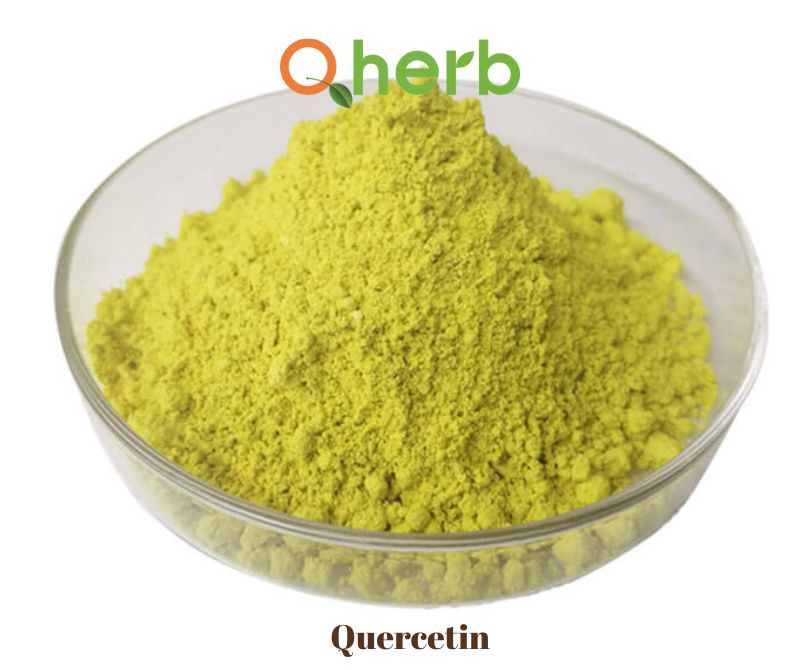Quercetin and its Health Benefits
As the popular saying goes – ‘an apple a day keeps the doctor away’. This adage holds true nowadays. Apples, as it has been found out, contain a good amount of flavonoid called quercetin. Quercetin is a pigment that boasts of anti-oxidant properties and can also be found in good quantities in cherries, raspberries, red grapes, and red wine. All these fruits contain dark pigment. Red wine, as you all know, is considered healthier than white wine, the reason being a higher content of flavonoid. Quercetin is also available in fruits that are non-red pigmented and vegetables like citrus fruits, broccoli, and different varieties of leafy greens. Get to know more about quercetin in details and its health benefits.
What is Quercetin?
Quercetin is actually a plant flavonol that belongs to the flavonoid group of the structural class of organic chemicals called polyphenols. It is found in a number of fruits, vegetables, grains, and leaves. Aside from that, leaf cabbages as well as red onions are some common food items that contain a large amount of quercetin. Quercetin is bitter to taste and is primarily used as a component in foods, beverages, and dietary supplements. The flavonoid is widely available in nature. The name was coined way back in the year 1857 and was taken from quercetum. Quercetin happens to be among those dietary flavonoids that are the most abundant in nature, with daily consumption that lie in the range of 25 to 50 milligrams. In red onions, quercetin is available in high quantities in the outermost rings and in those parts that are closest to the root. The parts near the roots are supposed to contain the highest concentration of quercetin. According to a study that has been conducted recently, tomatoes that are grown organically, contain 79% more quercetin that those that grown non-organically. Quercetin is also present in different kinds of honey that are obtained from various plant sources.
Health Benefits of Quercetin
There are a host of benefits attached to quercetin. Even though, nothing has been finalized till now and the results are yet to be confirmed, the list of possible health benefits comprise. It alleviates varicose veins and bruising, and takes care of the fragile capillaries. Quercetin boosts cardiovascular health by preventing the oxidation of bad cholesterol and helps in fighting prostate cancer. It also neutralizes the free radicals before any damage is done to the cells and the credit goes to its anti-oxidant properties. Aside from that, it enhances lung functioning and helps in getting relief from respiratory diseases like bronchitis, emphysema, asthma, etc. Quercetin is often combined with other flavonoids such as rutin and hesperidin as ingredients in nutritional supplements.
Dosage
The exact dose of this flavonoid is dependent on a lot of factors such as the individual’s health, age, and a host of other factors. Not much scientific information is at the fingertips right now and studies are still being conducted to verify the appropriate amount that should be consumed. One needs to remember that contrary to popular belief, natural products might not be safe to consume and in that case, correct dosages plays an important role. It is mandatory that the instructions on product labels be strictly followed. Have a proper discussion with a physician or a trained healthcare professional before consuming quercetin.
Precautions and Side-Effects
Several researches haven’t displayed any side-effects of quercetin till now. With that being said, the studies are only in its preliminary stage. Hence, if you are contemplating consuming quercetin, consume it in little doses or avail a dosage that has been prescribed. The safety and positive effects of such dosages have not been deduced till now. Always consult your doctor prior to taking any kind of supplementation. Taking advice from them is always recommended to avoid any kind of complications, though not proven, that might crop up.
Now that you have gained some knowledge, it would be easier for you to opt for a quercetin supplement that’s of good quality and is potent enough to benefit you just the way it is supposed to. The negative part of the whole thing is that the supplement market is, in fact, unregulated and unfortunately, many products do not contain what’s written on the label.



 Healthier Future
Healthier Future